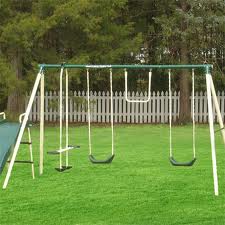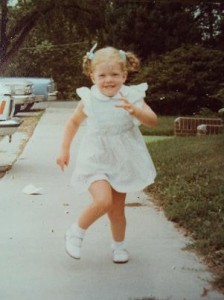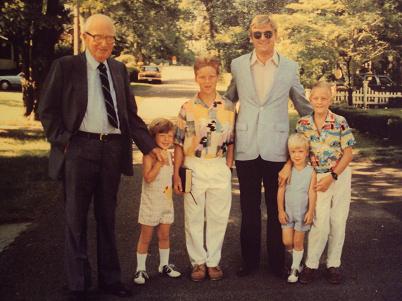It was a spring morning in 1980, and our three young children were dressed and ready for Sunday school. The balmy weather coaxed them outside while Nate and I finished organizing, and all three went next-door to play on the swings.
In those days swing sets were nothing like the wooden fortresses today’s youngsters enjoy. Back then they usually included two chained swings, a two-seated glider and a short slide, all made of metal.
Nelson, age 7, Lars 5, and Linnea 3, were playing nicely until suddenly blood-curdling screams came through our windows. We raced out and found Linnea on the ground, the boys hovering over her. Apparently they’d been on the glider pumping vigorously when Linnea had walked in front of them. One of the metal foot pegs had blasted her behind the ear, sending her flying and cutting a deep wound.
By the time we reached them, Linnea’s white pinafore was covered with blood as well as her hair, hands and arms. Nelson saw our alarm and quickly threw up a defense. “We didn’t do it! Not on purpose! It’s her fault!”
Nate carried his wailing daughter into the house, and we mopped her up enough to realize the gash would send us to the emergency room instead of Sunday school. It was difficult holding her still for the stitches, and at one point she had to be bound. But the outcome was good, and she healed 100%.
Many times I’ve asked my heavenly Father to “whack me over the head” with his answers to my prayers, and although I hope that doesn’t involve hospital stitches, I do want him to “hit me.” Especially when in the throes of making a difficult decision, I crave clear understanding of his preferred choice and don’t want to move ahead without hearing from him.
Amazingly, sometimes he complies, not with a bloody head or even audible words but by stopping me from making a mistake. For example, one time I was about to post a blog that wouldn’t have been wise, and the power went out in the house, preventing me from doing it. By the time it came back on, God had given me a more suitable idea.
He works this way in all our lives, speaking first with a still, small voice we often miss but then upping-the-ante by “hitting us over the head” with his answers to our prayers. I love that he gladly increases the intensity until we “hear” it. The fact that he never gives up is confirmation of his love.
When little Linnea got her glider-whack on the head, it probably wasn’t from God. But she definitely learned a valuable lesson and never again walked in front of a swing.
That’s exactly the kind of dynamic influence I hope God has on me when he’s trying to get my attention, a “hit” of insight that will make a permanent impact.
“Listen, my people, and I will speak… I am God, your God.” (Psalm 50:7)





